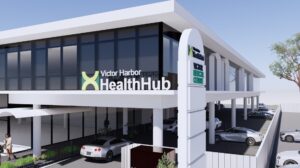Commercial property development is an involved and often long process that requires investors and developers to carefully consider all legalities as well as potential risks involved.
Due diligence involves conducting site investigations and obtaining entitlements such as permits. Zoning plays a pivotal role in ensuring the viability of any project.
Pre-Development
 At this stage, developers locate and purchase land, conduct due diligence such as conducting site investigations or Phase 1 environmental reports, obtain all required permits (utilities, landscaping and architectural programming among them), as well as financing their development with either equity investors or construction loans.
At this stage, developers locate and purchase land, conduct due diligence such as conducting site investigations or Phase 1 environmental reports, obtain all required permits (utilities, landscaping and architectural programming among them), as well as financing their development with either equity investors or construction loans.
Commercial property development process Adelaide may take up to five or six years from inception to completion, and during that time the economy could change or market demand could fade – this is why experienced developers are experts at managing risk.
Pre-development marks the start of design work, depending on the complexity of each project, commercial developers may hire architecture and engineering firms to help translate their ideas onto paper. They may also serve as powerful lobbyists when applying for variances from local jurisdictions or building permits.
Once all necessary permits are secured, construction can begin on your project. At this stage, it is crucial that all tasks and milestones that need to be accomplished in order to secure a certificate of occupancy from your municipality at completion of this stage.
At this stage, it’s also wise for the development team to begin marketing the property to potential tenants, if they have not done so already. Doing this allows the development team to gauge interest in their project while beginning the discussion about how best to monetise it once completed. Often developers can even secure major tenants before completion – an action which reduces financing requirements considerably for an equity partner and/or construction lender.
Zoning and Entitlements
When purchasing raw land, there’s a good chance it will already be zoned to support your planned project. If not, entitlement (a process to gain permits for development on property) could become an additional hurdle to your plans – or at the very least put them on hold temporarily.
At commercial property development process Adelaide projects, this is usually one of the longest and most complex phases. To ensure its success, this phase must involve coordination among a multidisciplinary team including project manager, civil engineer, architect, landscape architect as well as potentially specialty consultants such as traffic, environmental, or railroad (if you live near train tracks). Unfortunately, much of this phase depends on local government officials (planning commission, city council) granting their approval – this means success will largely depend on skillful and reliable team performance during entitlement processes.
As part of this phase, it’s vital that the surrounding community stays up-to-date on your project’s status in order to prevent resistance or unfavorable responses from local residents and businesses – also known as negative impact neighborhood board membership (NIMBYism).
Once your entitlements and permits are in order, construction can commence. This stage typically involves earthwork and utility installation before external building construction begins – depending on the size of your project, this could last up to 12 months. To reduce risk and ensure your project will be finished on schedule and on budget, work with a developer familiar with local ordinances and processes during this phase.
Pre-Construction
Once a commercial property development team has created the appropriate plans and completed their due diligence, construction can commence. At this stage, architects and engineers will prepare the design for their building while conducting Phase 1 environmental reports; use permits, variances, utility and landscaping approvals will likely need to be secured as well as use permits from local zoning variance authorities and more may need to be obtained prior to construction starting.
Commercial property development process Adelaide also take this time as an opportunity for community outreach; local ordinances often mandate communication with existing businesses and residents in order to avoid miscommunication or the creation of unfavorable attitudes like those known as NIMBYs (Not In My BackYard).
At this stage, a developer should have an improved idea of the length and cost of their project as well as their capital stack – the mix of debt and equity financing they plan on using to fund construction.
As construction progresses, a developer should work closely with their design/engineering team and gather any required permits or approvals. Furthermore, ensuring they have an effective marketing plan in place will enable them to secure tenants before construction is finished.
After construction is completed, municipal inspectors will visit the site to make sure that it meets community standards and has a valid certificate of occupancy. This step ensures that when tenants move into their newly renovated space they can start conducting business as planned immediately.
As commercial real estate development encompasses more than rehabilitation and restoration of existing buildings, most people associate this term with new construction. But finding and making deals on vacant land, conducting due diligence on all permits and entitlements required for construction of the building, then having it ready for tenants within an acceptable timeline can be challenging – which is why so many developers prefer working on smaller commercial development projects that they can control from start to finish.
